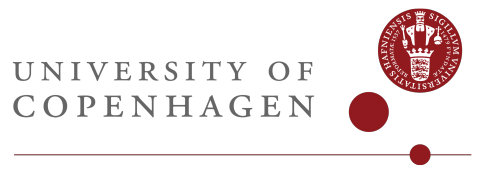
4EU+PharmacoEpi (advanced course):an integrated 4EU+ Pharmacoepidemiology educational course
Sorbonne University
University of Copenhagen (UCPH)
University of Milan (UNIMI)
Heidelberg University



Pharmacoepidemiology relies on the analysis of real-world data to provide real-world evidence on the benefit-risk balance of treatment. It represents a key resource to confirm and complement findings from randomized controlled trials. Among various types of data sources, national administrative health databases are essential data sources in pharmacoepidemiology, but their great complexity requires expert knowledge.
Although European administrative health databases share similarities in their content and core architecture, there is still a tendency from academia in Europe to train students interested in pharmacoepidemiology using local data sources. Our initiative is to propose a unique educational initiative providing pharmacoepidemiological training on secondary data sources from multiple European countries. This educational activity takes advantage of each university’s knowledge of its own national database and it will allow students to gain knowledge on how to use databases from multiple European countries and perform multinational research. In turn, we expect that our educational program will promote the internationalization of students and will greatly increase the scientific quality of pharmacoepidemiological research projects at both the MSc and the PhD level.
In particular, the 4EU+ promoted integrative educational program in pharmacoepidemiology will provide extensive and integrated knowledge in the use of the French administrative health databases, the Danish registries, the Italian National Health Service databases, and the German administrative health databases.
We started the 4EU+PharmacoEpi program in 2021. Since 2021, more than 75 students from the six universities of the 4EU+ alliance attended the course. The course is renewed this year and the short-term mobility will occur in Paris.
During this advanced course, students will:
- Gain an understanding of the structure of the French administrative health databases, the Danish registries, the Italian National Health Service databases, and the German administrative health databases. and how to get access to these databases
- Develop a critical understanding of how to use multinational databases for pharmacoepidemiological research.
- Develop skills in protocol writing for pharmacoepidemiological projects.
Date:
- 5-day online course: January 27 to January 31
- 2-day in-person course in Paris: April 3 to April 4
Who should apply?
Individuals interest in conducting pharmacoepidemiology studies using administrative healthcare databases. The course will be open for MSc and PhD students including:
- Medical and pharmaceutical students
- Students in biostatistics, computational science, and bioinformatics
- Students in public health
The course is designed for individuals with a grounding in epidemiological methods and concepts and/or some prior knowledge of pharmacoepidemiology, including an understanding of methodological concepts such as bias and confounding. Prior experience of statistical software (R, SAS, SPSS) is not required but strongly recommended. All courses will be provided in English, applicants should have a good command of English.
Up to 20 participants per university will be accepted.
Cost
The course is free for all students of the 4EU+ Alliance including Sorbonne University, University of Copenhagen, and University of Milan, Heidelberg University, Charles University, Geneva University, and the University of Warsaw. Additionally, travel and living costs during the 2-day in-person course in Paris will be covered for students of the 4EU+ Alliance.
What topics will you cover?
- Database description
- General overview of the aforementioned data sources
- Critical appraisal of published pharmacoepidemiological studies using the four data sources
- Regulatory conditions for data access and linkage to other data sources
- Available common data model for multinational databases
- The practicalities of planning a study, including study design, measurements in pharmacoepidemiology (outcomes, exposures, confounders), sources of bias and errors, and methodological approach to reduce confounding and combine multiple data sources
- Computer-based practical exercises using statistical software (R, SAS, or SPSS) will be provided as supplementary material depending on students’ skills in statistical software (not mandatory for students without experience in statistical software).
Course delivery
The first part of the course will be delivered online and consists of live online lectures, including questions & answers sessions. It will occur during weekdays January 27 to January 31. All lectures will be recorded and accessible to the students who cannot attend in person each course. The recorded lectures will be available for the next parts of the course.
The second part of the course will be performed online by students in small groups, by writing specific parts of research protocol using the four databases. A referent teacher will be appointed for each group. An access to the Learning Management System of Sorbonne University will be granted to all students, so students will be able to interact together online with an embedded forum and will have access to the recorded lectures. Students will have one month to finalize the research protocol.
The last part of the course will occur at Sorbonne University in Paris during two days from April 3 to April 4. Students will present their research protocol and get feedback from their peers and teachers of the four universities.
Assessment
There is no formal assessment but a Certificate of Attendance will be provided at the conclusion of the course.
Teaching faculty
Experts of the French administrative health databases, the Danish registries, and the Italian National Health Service databases, and the German administrative health databases.
Leading faculty:
- Dr Julien Kirchgesner (Sorbonne University)
- Dr Maurizio Sessa (University of Copenhagen)
- Dr Manuela Casula (University of Milan)
-
Dr Andreas Meid (Heidelberg University)
How to apply
Applications are now open for the advanced course in 2025, and can be made via our application form.
>> Access to the Online application form
For any further information, please contact Julien Kirchgesner by email (julien.kirchgesner@aphp.fr)
Applications must be submitted by November 30, 2024.
